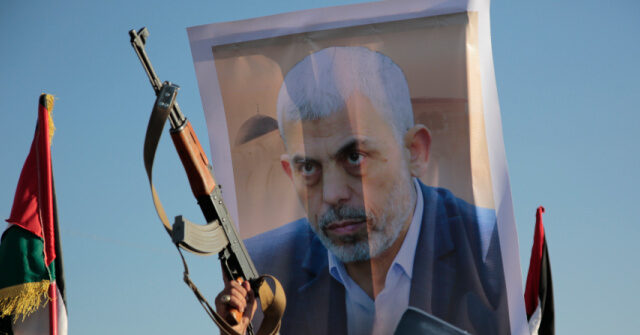On a recent Friday, the Iran-backed terrorist organization Hamas confirmed the death of its leader, Yahya Sinwar, in Gaza, describing him as a “fallen martyr.” Following Sinwar’s death, Hamas made it clear that it would not negotiate the release of approximately 100 Israeli hostages the group has held since the October 7 massacre, wherein an estimated 1,200 individuals were killed. Sinwar ascended to leadership in August after the death of the previous political chief Ismail Haniyeh in a bombing in Tehran. Sinwar was believed to be a key architect behind the October 7 attacks, which were characterized by extreme violence against Israeli civilians. Under his leadership, Hamas intensified its calls for more brutal measures and suicide bombings against Israel, signaling a shift towards greater atrocities against the Israeli populace.
Khalil Hayya, who has taken over as chief of Hamas in Gaza following Sinwar’s elimination, echoed sentiments of defiance and martyrdom, framing Sinwar’s lifetime of struggle as noble. He claimed Sinwar’s death would “strengthen” Hamas’s resolve and reiterated the group’s stance that hostages would not be released unless conditions related to Gaza’s situation and the release of their own prisoners were met. Hayya’s statements underscored Hamas’s broader goals of eradicating Israeli occupation and establishing a Palestinian state that includes Jerusalem as its capital. Hamas remains committed to its openly genocidal agenda, seeking to dismantle Israel and replace it with a Palestinian state under Islamist governance.
Meanwhile, Iranian state media reflected similar sentiments as Hamas officials touted their motivations as a quest for freedom and dignity, dismissing the possibility of eradication of their movement. Basem Naim, a senior official in Hamas, expressed that their fate would either be victory or martyrdom, framing their struggle as a hero’s journey. The Israel Defense Forces (IDF) confirmed the operation that led to Sinwar’s death occurred after they identified suspicious activities in Rafah. Sinwar was killed amidst a broader mission aimed at targeting Hamas operatives, with a tank shell ultimately striking him. The IDF’s objective was not explicitly centered on Sinwar, highlighting the chaotic nature of military engagements within the region.
Following Sinwar’s death, Israeli Prime Minister Benjamin Netanyahu made a direct appeal to Hamas, suggesting that negotiations could end the ongoing conflict if Hamas returned the hostages. He underscored that peace could be achieved immediately if the militant group renounced violence. Netanyahu emphasized Israel’s commitment to the safety of the hostages while simultaneously warning that those who threaten their lives would face relentless pursuit and retribution from Israeli forces. Israel’s approach reflects a strategy aimed at undermining Hamas’s leadership while seeking to reassure Israeli citizens of the state’s commitment to retaliating against those responsible for the violence.
Israeli Defense Minister Yoav Gallant reiterated the government’s stance following Sinwar’s elimination, indicating that the message sent by Sinwar’s death was multi-faceted – it was aimed at hostages’ families and the residents of Gaza alike. He noted that Sinwar, who he characterized as a bringer of death and disaster to the area, had ultimately met his end, thereby calling on militants to surrender. This rhetoric appears designed to undermine Hamas’s psychological grip on both its members and the broader population in Gaza, framing Sinwar’s death as a pivotal moment in the conflict.
Sinwar’s death contributes to a significant trend of casualties among leaders of Iran-backed terrorist organizations, particularly in the context of heightened Israeli operations. In recent months, the deaths of high-profile figures, including Ismail Haniyeh and Hezbollah’s Hassan Nasrallah, have marked an escalating campaign against these groups. The increased military action against Hamas and Hezbollah underlines a calculated Israeli strategy to destabilize Iranian influence in the region by systematically eradicating its leadership. As tensions remain high and military engagements continue, the fate of the Israeli hostages, alongside the broader implications for the stability of Gaza and international relations, hangs in a precarious balance.

